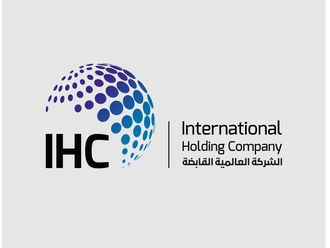“Can I join the gym?”, I asked my dad when I was in eighth grade. My friends and fellow team members were all signing up at a local gym to gain strength during the football off-season. I wanted to be part of the group. so much so, that the moment my dad got home from work, I pleaded with him to let me go along.
My argument included the facts that I would get stronger; I would be with my fellow teammates and I wouldn’t waste his money. The fee was $12 (Dh44) per month. A few decades ago that wasn’t as cheap as it sounds today, but it wasn’t expensive either, and I promised that I’d use the gym every day.
My dad patiently listened to my petition, asking me questions and engaging with my request. I didn’t notice it at the time, but as we talked he was guiding me through the house, from the family room through the entryway to the stairs.
From there, we made our way to my room — the whole time talking about the gym. I thought he was going to say, “Sure, go ahead and join.” He seemed deeply interested.
Then he sat on the edge of the bench press that was in my room and asked me again, “Are you sure you’ll use it every day?” Before I could even answer, he reached back to the weights on the barbell, wiped the dust and said, “How about you start using what you have first? When you use these every day, then you can join the gym with your friends.”
Ouch! I was deflated by the refusal, but my dad taught me a lesson that has stuck with me to this day: use what you have before you ask for more.
I was reminded of this lesson when I sat listening to a group of leaders precede complaint after complaint with “If I had…” instead of acknowledging the resources they had. Perhaps the lesson my dad taught me all those years ago made me a bit jaded, but I get annoyed when people don’t use what’s at their disposal.
Instead of focusing on what you’re lacking, make the most of your existing resources.
Do you ever find yourself thinking, “If only I had [fill in the blank], then I could achieve so much more?” The world is full of people who are searching for something more — the next great idea, the surefire marketing plan, more resources, support of management — and ignoring what’s already at their disposal.
If you wait until you have everything you need before acting, you will never make much progress because that day will never come.
A former boss of mine used to say, “There isn’t a problem that you can’t grow yourself out of.” If you want more, earn it. The fastest way to get a promotion is to over-deliver in your current role.
The surest way to get more resources is to maximise the ones you already have.
I haven’t met a CEO yet who feels he has everything he needs. Something is always missing: the perfect team, market-leading products and services, weak competition, abundant cash, a supportive board, market opportunities, enough hours in the day, etc. But, the best amongst them don’t get distracted by what they don’t have.
“Do it!” is the advice from Art Williams, the self-made billionaire (and one of my business heroes) who led the transformation of the life insurance industry. Don’t wait until you have more; whatever you need to do, do it now with what you have.
It’s easy to make excuses for inaction — I would do it if I could get a promotion, if I had more people, more budget or better resources — but this attitude will get you nowhere.
The difference between winners and losers is that winners use what they have, and act. They don’t spend their time waiting for a better or quicker way.
You may not always be able to control what resources you have, but you can certainly control how you use them. Make the most of what you have!
The writer is a CEO coach and author of “Leadership Dubai Style”. Contact him at tsw@tommyweir.com












